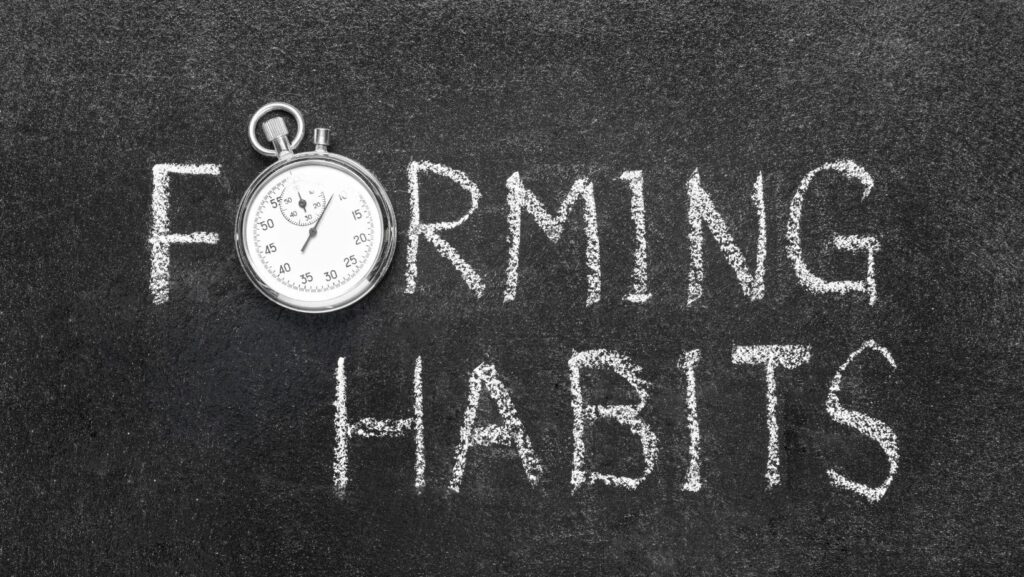Habits shape daily life, influencing everything from productivity to health. Understanding the different types of habit formation can empower individuals to create lasting change. Whether it’s adopting a new exercise routine or breaking a bad habit, the process involves various psychological mechanisms that drive behavior.
Some habits form through repetition and reinforcement, while others emerge from cues in the environment. By exploring these types, one can identify effective strategies for personal growth and self-improvement. This article delves into the nuances of habit formation, offering insights into how habits develop and how they can be transformed for a better life.
Types of Habit Formation
Habit formation involves a process where behaviors become automatic through repetition and reinforcement. Understanding the primary types of habit formation assists individuals in making meaningful changes in their lives.
1. Classical Conditioning
Classical conditioning occurs when an individual associates a particular stimulus with a specific response. This learning process relies on repetition, making behaviors instinctive over time. For example, a person might feel hunger upon hearing a dinner bell due to a conditioned response.
2. Operant Conditioning
Operant conditioning focuses on using rewards and punishments to shape behavior. Positive reinforcement encourages the repetition of desired actions, while negative reinforcement discourages unwanted ones. For instance, regularly exercising can lead to weight loss, serving as a rewarding outcome that reinforces the habit.
3. Social Learning
Social learning emphasizes the impact of observing others. Individuals adopt habits by mimicking behaviors seen in peers, role models, or media figures. For example, a child may develop a reading habit after witnessing parents engrossed in books.
4. Cue-Routine-Reward Loop
The cue-routine-reward loop describes how habits form through a trigger (cue), an action (routine), and a positive outcome (reward). Recognition of this loop assists in modifying existing habits, as one can replace routines while maintaining the same cues and rewards. A common example involves substituting a midday snack with a healthy alternative to achieve the same satisfaction.
5. Contextual Habit Formation
Contextual habits develop based on specific environments or situations. Individuals often perform certain behaviors in identifiable settings, such as exercising in a gym or studying at a desk. Changing the environment alters the cues associated with the habit, influencing whether it persists.
Fostering awareness of these types of habit formation empowers individuals to strategically approach personal growth and self-improvement. Each method can be applied effectively to develop beneficial habits or break detrimental ones.
Types of Habit Formation Explained
Understanding the types of habit formation aids in effectively creating or altering behaviors. Two primary categories encompass habit types: automatic habits and deliberate habits.
Automatic Habits
Automatic habits develop through repeated behaviors in consistent contexts, often transcending conscious awareness. Repetition solidifies these habits, allowing actions to occur with minimal cognitive effort. For example, brushing teeth every morning exemplifies an automatic habit formed through consistent cues like the time of day and specific routines. Psychology research demonstrates that about 40% of daily actions consist of automatic habits, indicating their powerful influence in shaping behavior.
Deliberate Habits
Deliberate habits require conscious effort and intention for establishment, with individuals actively choosing to adopt new behaviors. This method often involves setting specific goals and employing strategies for accountability and reinforcement. For example, an individual may commit to exercising three times a week, actively planning workout sessions and tracking progress. Studies indicate that maintaining a daily journal or using habit-tracking apps enhances the effectiveness of deliberate habit formation, promoting greater success in achieving desired outcomes.
Factors Influencing Habit Formation
Habit formation varies significantly based on numerous factors. Understanding these factors helps individuals establish more effective habits.
Environmental Triggers
Environmental triggers play a crucial role in habit formation. Specific cues in one’s surroundings can prompt behaviors. For instance, placing a water bottle near a workspace encourages hydration. Research indicates that environments can become associated with particular actions, making those actions easier. Contextual cues such as time of day, location, and social settings influence habit cues. Creating a supportive environment enhances the likelihood of maintaining desired habits.
Psychological Motivations
Psychological motivations significantly affect habit formation. Individuals often form habits to meet intrinsic or extrinsic goals. Intrinsic motivations include personal satisfaction and enjoyment derived from the behavior. For example, exercising may stem from a desire for improved health. Extrinsic motivations often involve external rewards, like recognition or monetary incentives. Understanding these motivations assists in cultivating lasting habits. Implementing strategies that align with motivational factors increases adherence to new behaviors.
Benefits of Understanding Habit Types
Understanding habit types offers several advantages that enhance personal growth and development.
- Improved Self-Awareness: Recognizing the difference between automatic and deliberate habits aids in identifying personal strengths and weaknesses. This awareness enables targeted strategies for change.
- Tailored Strategies for Change: Knowing habit types allows individuals to select relevant approaches for forming or breaking habits. For instance, automatic habits benefit from environmental adjustments, while deliberate habits may require structured planning.
- Enhanced Motivation: Understanding the underlying mechanisms of habit formation, including psychological motivations, can bolster intrinsic motivation. Individuals can align strategies with personal goals, leading to sustainable habit development.
- Increased Success Rates: Utilizing knowledge of habit types leads to more successful outcomes in behavior modification. Employing appropriate strategies based on habit context increases the chances of maintaining desired changes.
- Better Resilience to Slips: Recognizing the potential for setbacks becomes easier with a clear understanding of habit types. Individuals can develop resilience and employ specific tactics to address relapses effectively, minimizing disruption to progress.
- Cultivation of Positive Environments: Knowledge of how environmental triggers influence habits encourages the creation of supportive spaces. By optimizing surroundings, individuals promote the maintenance of positive habits while mitigating the risk of negative ones.
- Long-term Habit Sustainability: Understanding habit types contributes to the long-term sustainability of behaviors. By recognizing automatic tendencies and acknowledging the need for conscious effort in deliberate habits, individuals create a balanced approach to habit maintenance.
Goals and Aspirations
Understanding the various types of habit formation is crucial for anyone looking to enhance their daily lives. By recognizing the differences between automatic and deliberate habits individuals can tailor their approaches to personal growth. This awareness not only fosters better self-management but also paves the way for lasting change.
Embracing strategies that align with specific habit types can lead to improved productivity and well-being. As individuals navigate their journeys toward self-improvement they can apply these insights to cultivate positive routines and break free from detrimental ones. Ultimately this knowledge empowers them to create a life that reflects their goals and aspirations.



